From June 24-25, Chiefs and Health Leads from across the Northern Region, gathered for the Regional Spring Governance Caucus on Lheidli T'enneh territory (Prince George). Regional Caucus Sessions are part of the First Nations Health Authority (FNHA) engagement process, and provides an opportunity for Nations and community voices to be heard and for FNHA to share regional and province-wide updates on important work and recent projects. This year marks a new approach that improves upon the former separation of technical and operational topics from the political and governance topics. This new approach was developed with guidance and through feedback from First Nations leadership, and takes into consideration the time and busy schedules of Chiefs and the Health Directors.
This year the Northern Region saw over 130 attendees at Caucus, which included 35 Chiefs and Proxies, and 26 Health Leads or Health Directors. The Caucus was chaired by the First Nations Health Council (FNHC) through their representatives for the Northern Region.
Engagement topics included updates on Jordan's Principle processes, the Summary Service Plan, capital infrastructure updates and proposals, provincial and Northern updates, opioid overdose and public health emergency work. It also included elections for positions on the First Nations Health Directors Association (FNHDA) Board and the FNHC.
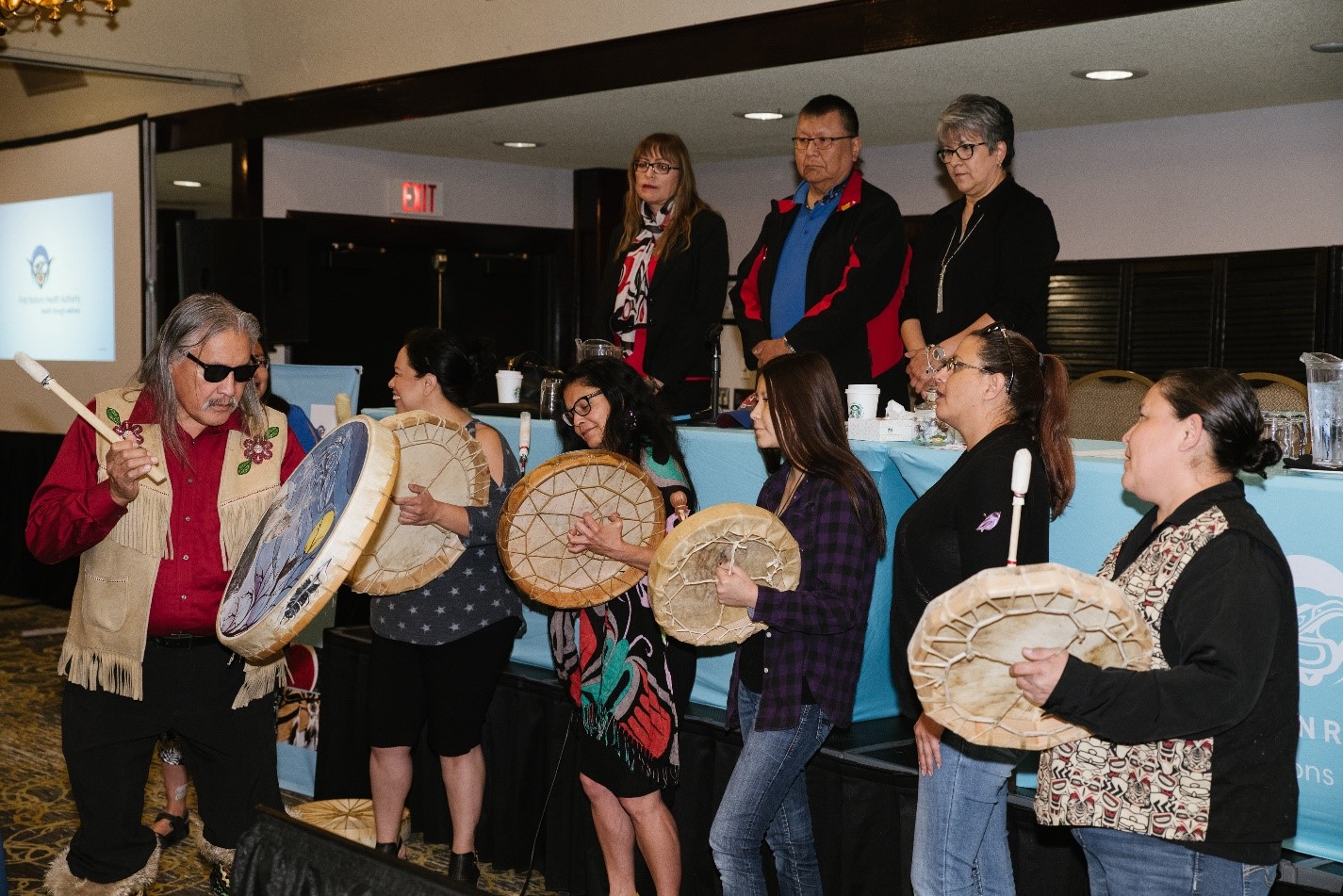
The opening day included a few traditional songs from the Louie Singers and a prayer to open the next two days in a good way. Darlene McIntosh (Lheidli T'enneh) shared a prayer that reminded us that the Creator has blessed us with this land and to open this sacred space in a good way.The Living Well: Transforming First Nations Health in BC video was screened in the morning for delegates. The video provides an overview of the Tripartite First Nations Health Governance Structure in BC and is informative for leaders who may be new to their positions. Opening morning also included an update on the work of the FNHC and progress and updates on the recent MOU commitments.
During the lunch break, delegates broke out into sub-regions to undertake regional business and to review any resolutions brought forth during the caucus.
Delegates were encouraged to take part in traditional wellness activities throughout wellness breaks, including brushings from the Tsow-Tun Le Lum Society and traditional healing sessions with Ada Dene Traditional Healers .
The Social Determinants of Health video with Gwen Phillips was screened after the lunch break. Afterwards, an update on the Ten-Year Strategy on Social Determinants of Health was presented by regional representatives, followed by an update from the FNHA's Katie Hughes, Executive Director, Mental Health & Wellness on the Mental Health and Wellness Disbursements.
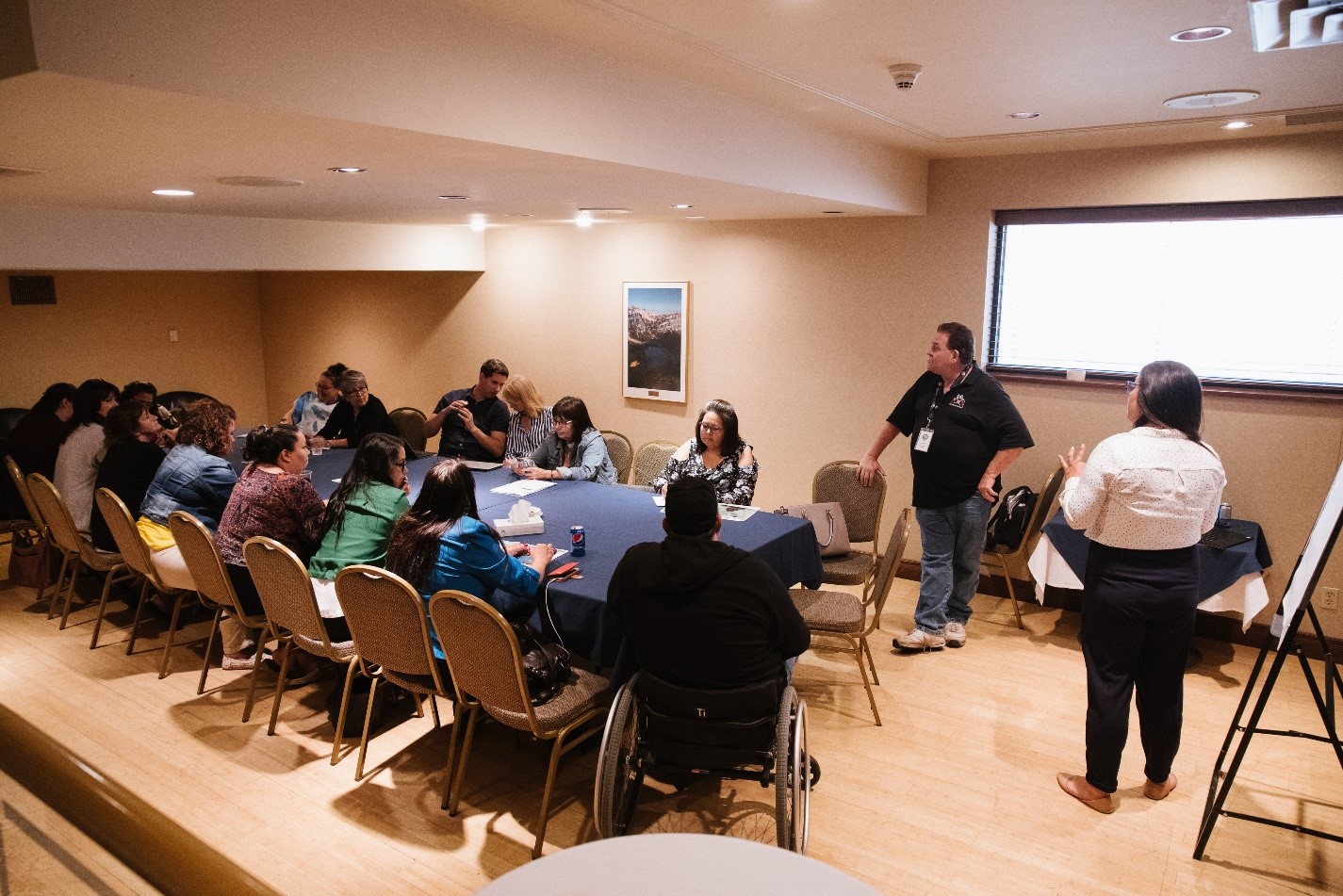
Breakout sessions among the Chiefs and Leaders were held, giving them an opportunity to share and speak to sub-regional priorities and successes. "We're dusting off those traditional roles," said one attendee, and, "We need to create a climate for people to be brave enough to step in the door," shared another. Breakout sessions included poster facilitation and notes to be shared among the various Northern sub-regions.
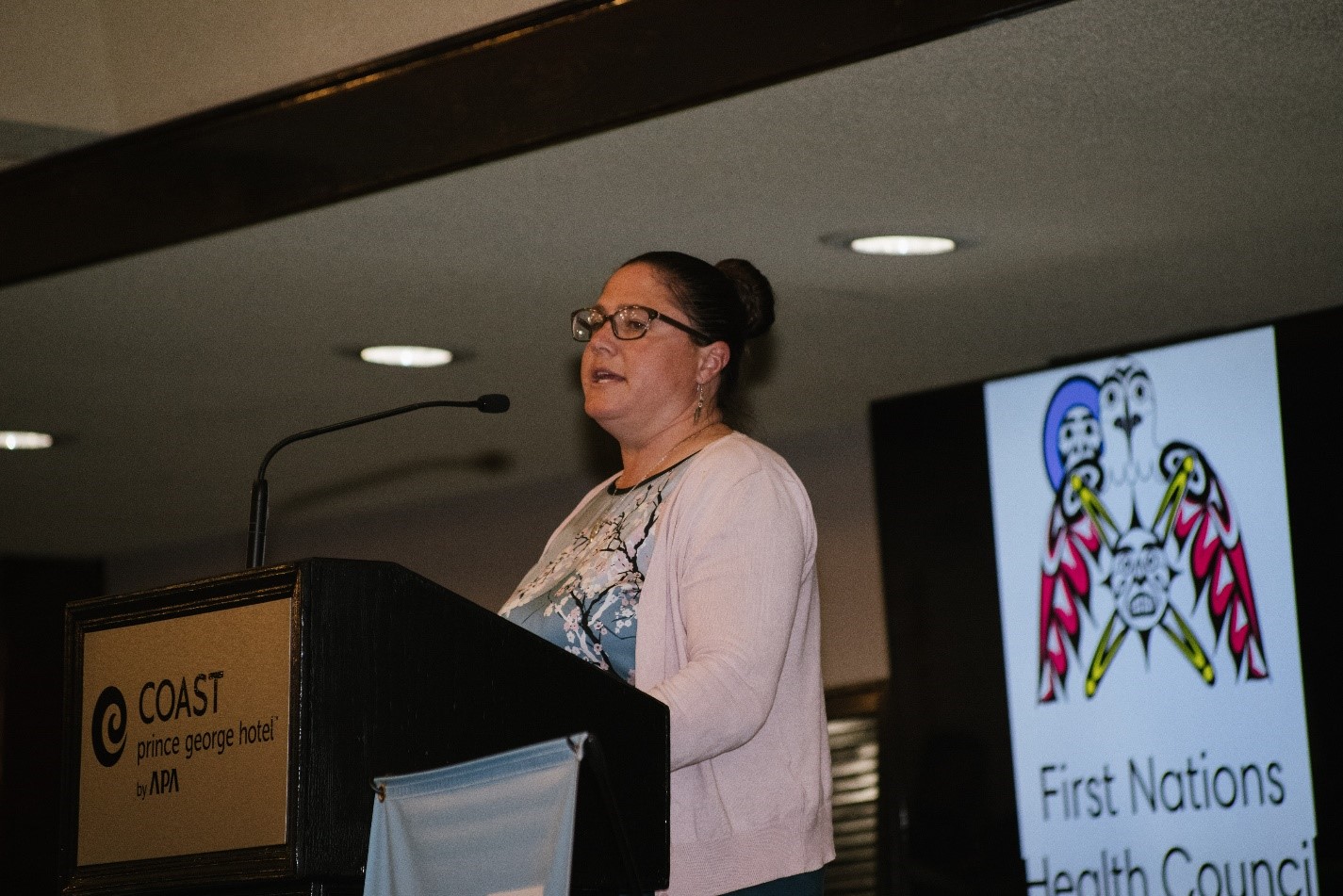
The new FNHA Director of Crisis Response Centre, Emily Dicken, provided updates on emergency preparedness, response and recovery for the Northern Region and province-wide. "We're working collectively to ensure no gaps in emergency management," she said. Emily shared examples of how disasters can affect First Nations communities in unique ways. She spoke of how when the Bonaparte Indian Band was under evacuation, they escaped with traditional food for their provisions. Information was also shared about the recent MOU signed with Emergency Management BC to ensure culturally safe services.
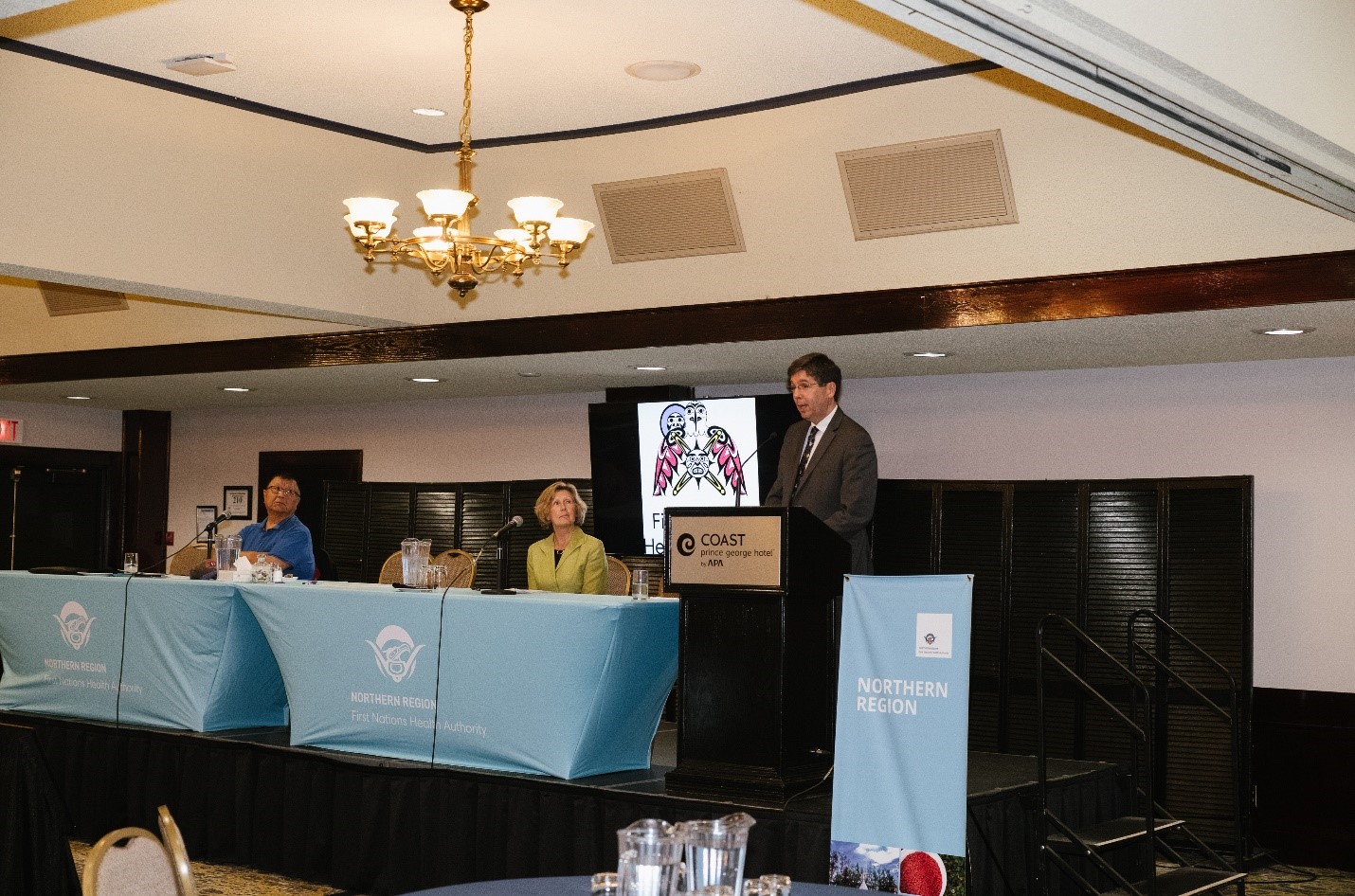
Caucus attendees were also given an update on the Highway 16 Partner Collaborations by Reg Faubert of the Ministry of Transportation, along with Linda Harmon, Manager, Programs and Air Policy. Updates included discussion around improvements and filling in gaps from the closing of the Greyhound routes in Western Canada. Projects included community transportation grants where communities can propose innovations to help fill in their transportation gaps. Through specific grants, 12 community vehicles were funded. In addition, information was shared on the recent Indigenous Driver Education program that resulted in 19 licensed drivers. The Ministry of Transportation also shared improvements to Highway 16 itself through webcams and road shelters.
Day two began with an opening prayer and territorial welcome from Lheidli T'enneh Elder Darlene McIntosh. The Nation-Rebuilding video featuring FNHC's Gwen Phillips, was screened in the morning followed by an update and overview of harm reduction work presented by the FNHA's Addiction Specialist, Patricia Jones.
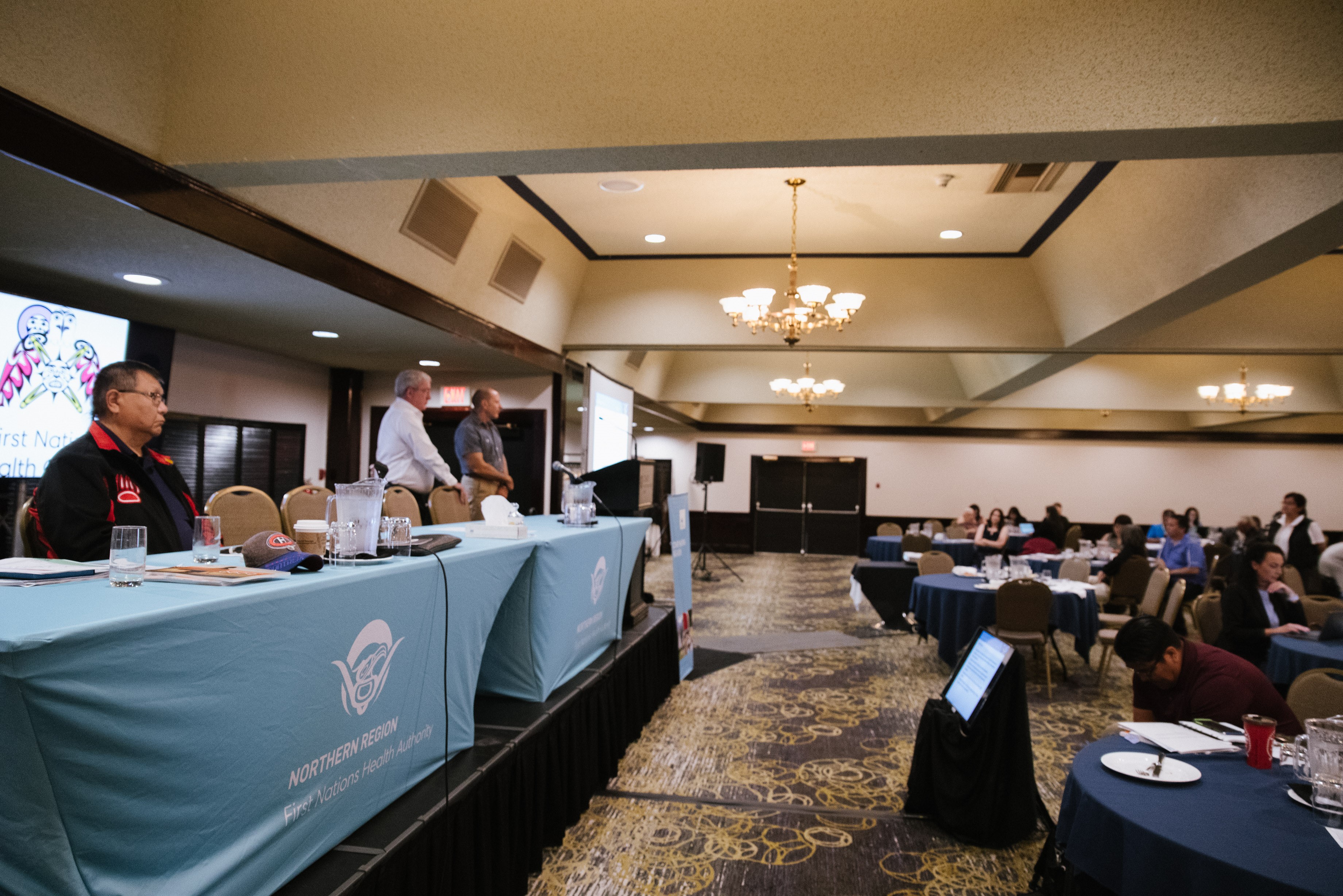
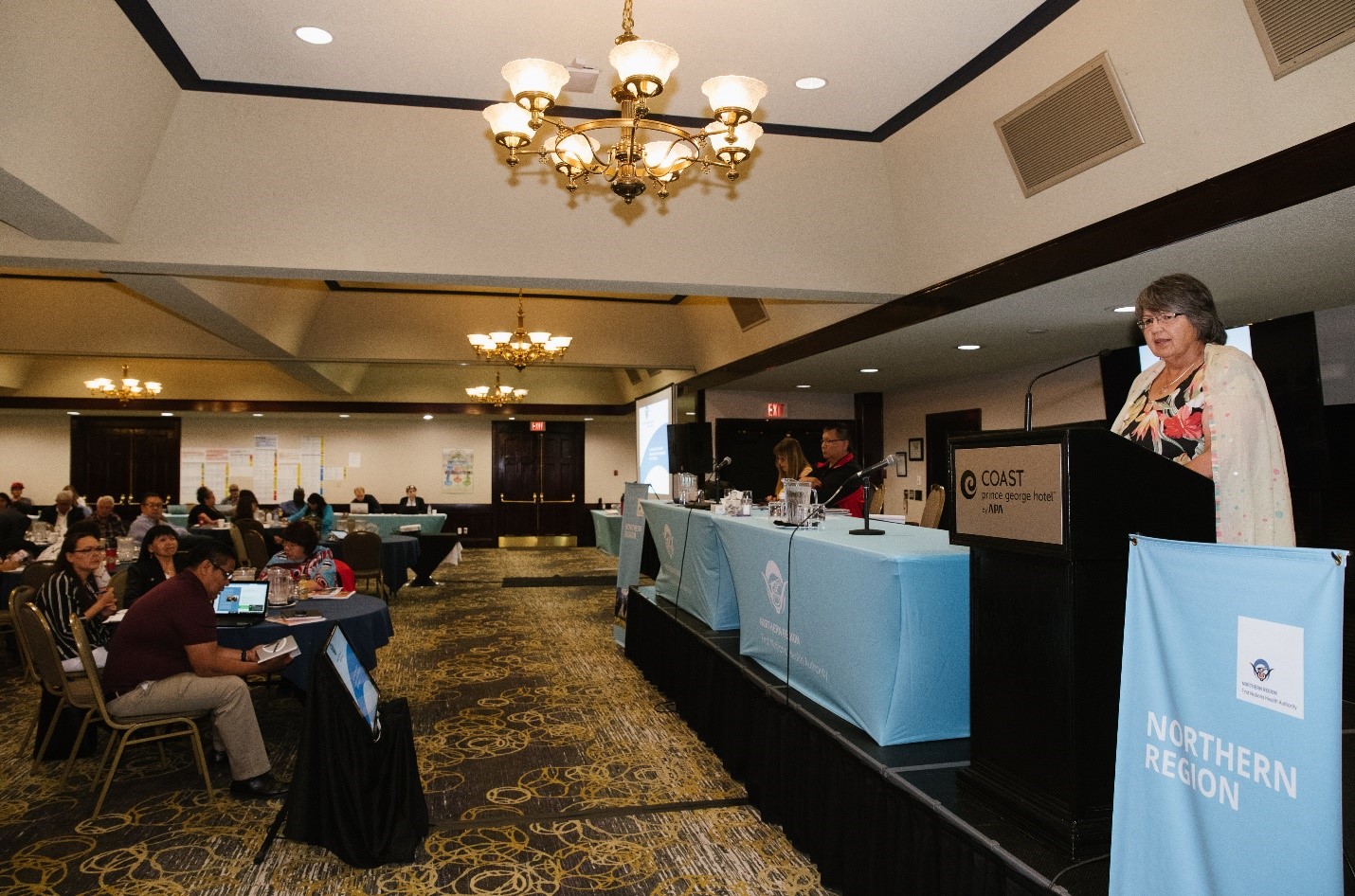
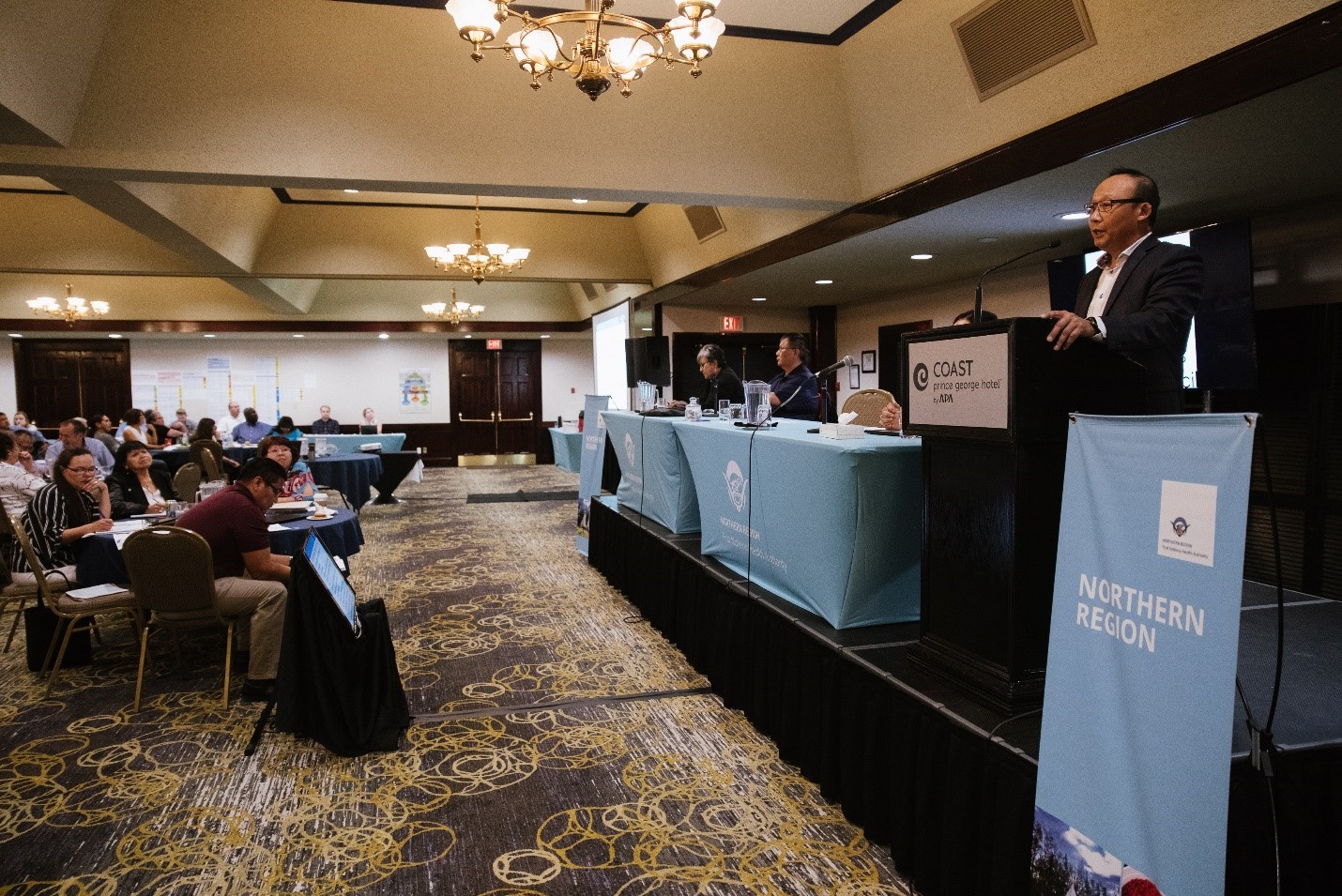
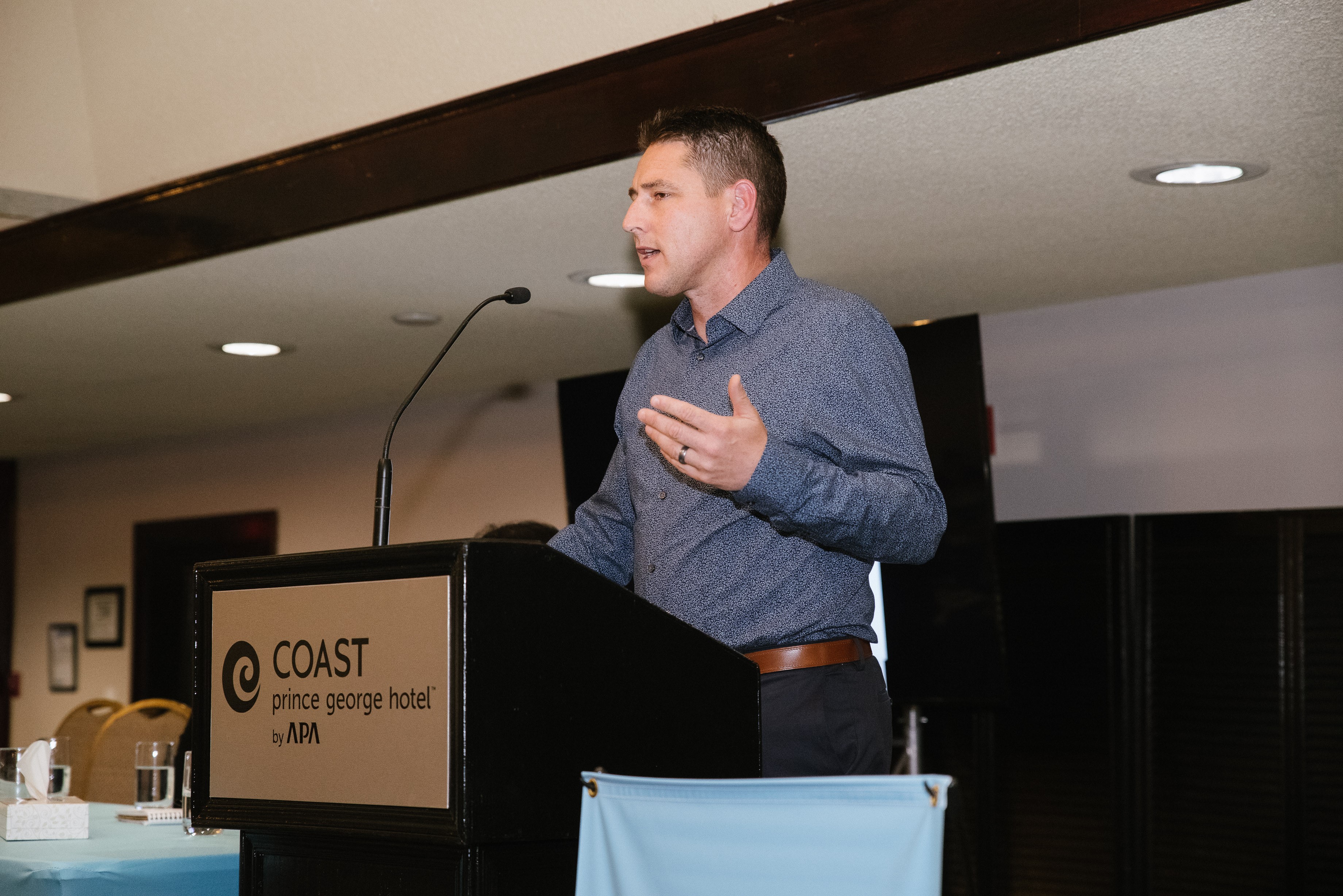
FNHA Consultant Jeff Moffett, and Malachy Tohill of BC Housing provided housing proposal ideas to improve patient travel for FNHA clients in the Northern Region. The proposals are currently in the planning stages but were met with great enthusiasm and feedback from the attendees.
FNHA Board Chair Colleen Erickson gave an update on the latest FNHA Summary Service Plan. Further information and updates from the FNHA focused on operations and capital expenditures, along with primary care and mental health and wellness updates shared by John Mah, FNHA Vice President, Health Benefits, and Nicole Cross, Northern Executive Director. The upcoming transition of Health Benefits to Pacific Blue Cross was discussed in detail by Darren McKnight, FNHA Director of Health Benefits and Andrea Oberdieck, Manager, Community Relations. With the transition, FNHA clients and their health care providers will find the new Pacific Blue Cross system easier to use, with fewer requirements for pre-approvals and faster turnarounds for adjudications and payments.
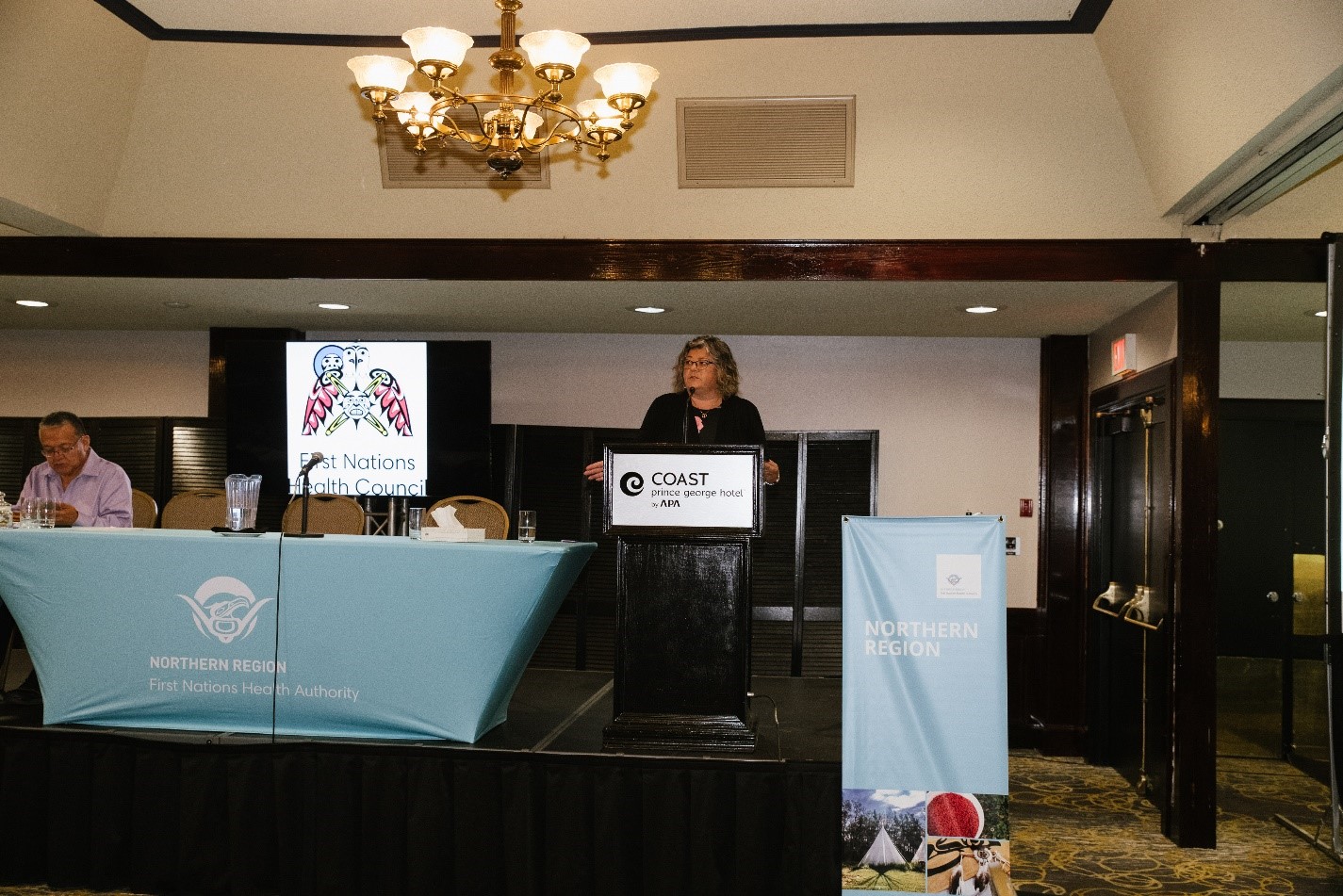
Dr. Shannon McDonald, FNHA Deputy Chief Medical Officer, shared an update of the ongoing opioid state of emergency in BC and how the crisis has disproportionately affected First Nations. Numerous Chiefs and Health Leads shared touching, personal stories of how the overdose crisis has affected them personally through family and through their communities.
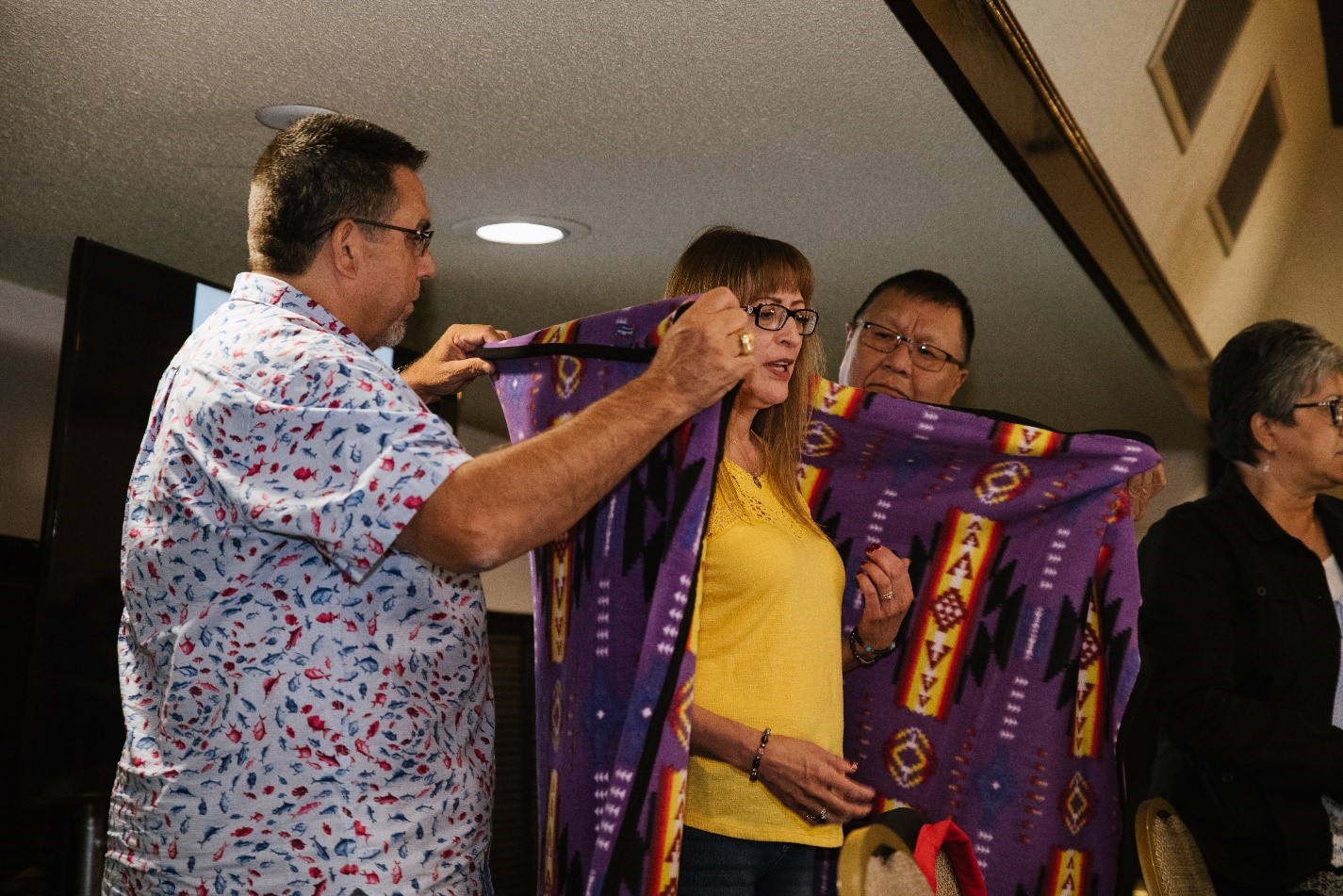
Outgoing FNHC member Chief Marie Quock was honoured and blanketed for her time on the Council. Elections were held for two positions: a vacant position on the FNHC and a board position on the FNHDA. Chief Willie Blackwater of Gitsegukla was elected to the FNHC and Tammy Baskin was elected to the FNHDA Board.An update from Indigenous Services Canada on Jordan's Principle processes and transitions completed the second afternoon. The program is in transition from the FNHA and back to Indigenous Services Canada. Mahdvi Russell and Chiara Taylor of ISC shared information on the program and ensured that staff are working to ensure a smooth handoff for the transition.
Closing comments were shared by attendees ending these important days.

